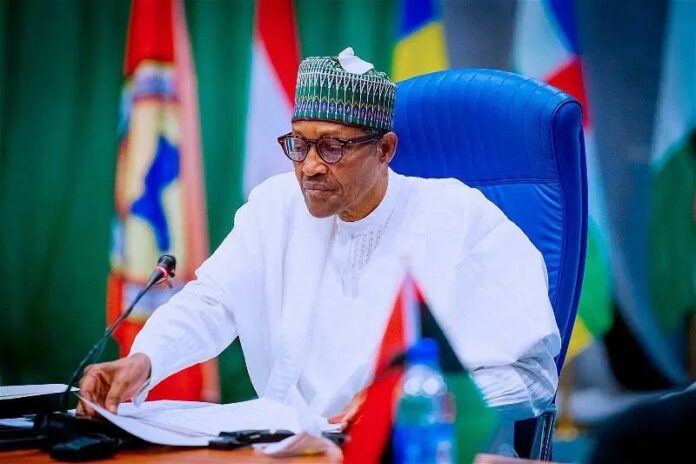Muhammadu Buhari, former Nigerian president and ex-military ruler, has died at the age of 82. He passed away at a London clinic where he had been receiving treatment after falling ill during a medical trip to the United Kingdom in April.
Buhari was widely recognized for his strict leadership style, personal integrity, and a political career that spanned decades. Though he never enjoyed widespread popularity as a politician, many respected him for his honesty, a rare quality in Nigerian politics. His reserved and disciplined nature earned him both praise and criticism throughout his life.
After three failed presidential bids, Buhari made history in 2015 by defeating the incumbent, President Goodluck Jonathan. This marked the first time an opposition candidate had won power through the ballot since Nigeria’s return to democracy in 1999. He was re-elected in 2019 for a second term.
He won support from northern Nigeria’s poor communities, known as the talakawa, and drew strength from a united opposition in 2015. His military background and promise to fight corruption and insecurity gave many hope for change. However, his administration faced challenges, including a deep recession triggered by falling oil prices, soaring inflation, and worsening insecurity.
Buhari’s promise to end Boko Haram’s terror never fully materialized. The extremist group remained active, and deadly attacks by armed groups and herders escalated. He was also accused of being too soft on criminal herders, especially as a Fulani himself. His government drew criticism after the Lekki tollgate incident in 2020, where soldiers opened fire on protesters during the #EndSARS demonstrations.
Born in December 1942 in Daura, Katsina State, Buhari lost his father at the age of four. He later joined the military and climbed the ranks steadily, benefiting from British training in the 1960s. In 1983, he seized power in a coup that overthrew the civilian government of Shehu Shagari, though Buhari insisted he wasn’t one of the planners. He ruled for 20 months before being removed in another coup.
During his short military regime, he launched a harsh campaign against corruption and social indiscipline. Whip-carrying soldiers enforced queueing at bus stops, and late civil servants were forced to do frog jumps. Critics saw this era as marked by repression. Journalists were jailed, the legendary musician Fela Kuti was imprisoned, and the media were tightly controlled. Still, some admired Buhari’s no-nonsense stance and refusal to enrich himself while in office.
After decades of military and public service, Buhari re-entered politics as a democrat. He lost multiple elections but stayed persistent. When he finally won in 2015, he pledged to clean up government, boost job creation, and support local farming.
His decision to ban rice imports was meant to encourage local agriculture. Instead, prices soared. A bag of rice that cost ₦7,500 during his predecessor’s term jumped to ₦60,000 under his watch. This price hike became symbolic of the economic hardship many Nigerians faced. Some of his earliest and most loyal supporters turned away from him. Even his wife, Aisha Buhari, publicly criticized aspects of his government.
His slow decision-making also earned him the nickname “Baba go slow.” He took six months to appoint his first cabinet, and defended the delay by blaming bureaucratic hurdles. He once said the system—not him—was the problem.
Toward the end of his presidency, Buhari seemed distant from the political succession process. Though he pledged to support his party’s candidate, many suspected he wasn’t enthusiastic about Bola Tinubu’s campaign. The controversial naira redesign policy, introduced months before the 2023 election, caused chaos across the country. Nigerians faced severe cash shortages, and the policy was seen by many as a strategy to weaken Tinubu’s chances. But the Supreme Court later forced a pause, and Tinubu went on to win.
Buhari’s presidency was also marked by his long absences due to health issues. Despite his commitment to democracy, he kept his medical condition private, leaving citizens in the dark.
He was married to Aisha Halilu, his second wife, and had ten children. He leaves behind a legacy of contradictions—respected by some for his discipline and integrity, criticized by others for economic failures and a perceived lack of empathy.
Muhammadu Buhari’s life journey took him from dusty military camps to the highest office in Nigeria, shaping the nation in ways that will long be debated.

